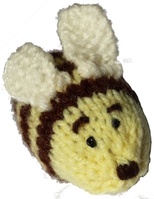
In the Goon Show, Eccles famously sang “I talk to the trees... that's why they put me away”. Talking to beekeepers while trying to set up this workshop, I felt everyone was looking at me like I was a crazy person: “We want to talk to the bees and find out what they want us to research...”
Participatory Action Research (PAR), as a technique, displaces the expert power of the academic, working with different communities to identify issues of common interest, devise strategies to research these topics and jointly come up with solutions to problems. Communities involved in PAR sometimes struggle to think of themselves as ‘experts’ and can be really intimidated by being asked to sit down and talk to academics. I felt this was even harder when trying to apply PAR approaches to talking to bees – you have to convince people working with bees that you’re not joking, not crazy and that there’s something interesting to be gained by trying to ‘talk to’ bees in this way.
The most striking thing that came out of this workshop for me was how bees are ‘spoken for’ by other people. Stories of bee extinction and various anthropomorphic representations of bees (including the knitted bee that I used as the logo for the workshop) make people generally quite sympathetic to bees. But the reality of getting up close and personal with a hive – the noise, the need to stay calm and still while they crash and bang into your protective veil – can be quite scary at first. The stories we tell about bees change how we engage with this species. It seemed very productive therefore to flip this around and try to think about what the bees say. Indeed, we ended up with some very interesting ideas for projects with this most sensitive of indicator species for general ecological wellbeing. But even at the end of the second day I still felt a little bit like I was playing the role of crazy academic, having to apologise to non-academics (including the bees!) for the rather strange day out we were having...
 RSS Feed
RSS Feed
